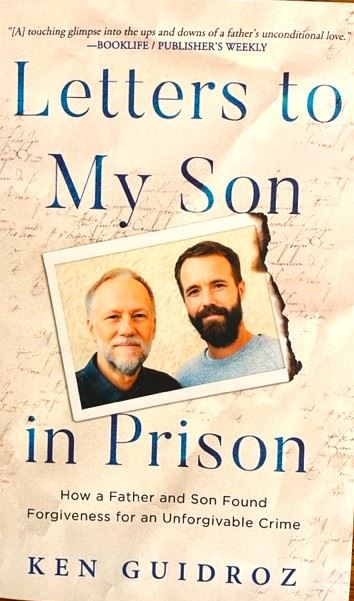 Founded in 1980 |
|
 | Ken Guidroz, Letters to My Son in Prison: How a Father and Son Found Forgiveness for an Unforgivable Crime, Mount Pleasant, SC, Bublish Inc., 2023. ISBN 978-1-647046781. |
Reviewed by : Alan J. Lippman, M.D
September 26, 2023
In 2022, according to the Centers for Disease Control and Prevention https://www.cdc.gov, approximately 110,000 people died in the United States of opioid overdoses. This compares with nearly 700,000 deaths from heart disease (the leading cause) and around 244,000 from Covid-19 (decreasing from 2021).
But the mortality data do not reflect the true extent of the damage done to individuals, families, and society at large by the opioid phenomenon. And whereas heart disease and Covid-19 infections may be regarded as “natural” conditions, reflecting largely biological and physiological determinants, opioid overdoses could be entirely preventable, provided the causative and contributory factors become fully known and controllable.
Going well beyond the hard data, the humanistic side of a sad opioid story is touchingly explored in this sensitive, revealing, and engagingly written work by Ken Guidroz, whose middle son, Lucas, driving his car while high on heroin, struck and killed a bicyclist, left the scene of the accident, and subsequently served time in prison for vehicular manslaughter.
Guidroz’ insight and honesty lead the reader to be keenly aware and highly appreciative of the emotional toll exacted on users, victims, and families under the spell of this infernal addiction. With openness and sincerity, the author reveals how the adverse impact of his son’s misbehavior affected their basic parent-child relationship and how, by developing new and more effective ways to communicate, they eventually were able to heal their broken link and to reconnect. At the same time, the author gains a more thorough understanding of his own behavior and motivation in ways that reshaped his belief in himself and his attitudes toward his family and his faith.
While calling attention to the peril of the societal crisis represented by the opioid epidemic (some would say, pandemic), this book dramatizes the human aspect of this modern tragedy.